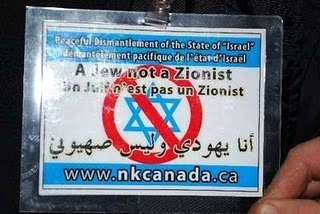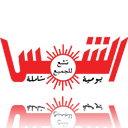Welcome!
Welcome!
AL JAMAHIRIYA INTERVIEWS DR. TERRY DUFFY, CHAIRMAN OF THE INTERNATIONAL DIRECT DEMOCRACY RESEARCH ASSOCIATION (IDDRA)
Read Also about
the LOCKERBIE Bombing - Full Report
(New Window >>> Read Here
>>>
AL JAMAHIRIYA: As a new international non-governmental organisation (NGO) committed to the concept of direct democracy, could you describe for our readers the main objectives of IDDRA?
TERRY DUFFY: IDDRA is a Dublin-based international NGO committed to academic research and dialogue in the areas of democracy, human rights and peace. It is a not-for-profit and non-political organisation with an international membership. We especially promote thinking about direct democracy and its potential for social good. One of the ways we encourage thinking about "direct democracy" as a concept is by our sponsorship of the International Green Book Academic Society (IGBAS) which fosters discussion among those interested in the new humanistic thought. In the short time since we started, IDDRA has acquired a reputation for profess-ionalism and dialogue on pressing contemporary issues.
AL JAMAHIRIYA: How did IDDRA get started?
TERRY DUFFY: IDDRA was formed in the Spring of 1995 out of a network of scholars and researchers from a wide range of countries who had met before at conferences and had a shared interest in the "direct democracy" concept. Our members span Europe, Africa, Asia, the Pacific and Australia, Latin America and the Arab world. For such a small society we are really quite representative of the global community and we have a shared vision for its betterment through direct democracy and social empowerment.
AL JAMAHIRIYA: What kind of activities has IDDRA undertaken?
TERRY DUFFY: In October 1995 IDDRA's International Colloquium on Human Rights and Democracy, was held in the Irish capital. Apart from some small preliminary meetings, this was our first public conference. IDDRA hosted this event to encourage dialogue on the really pressing issues which threaten true human rights and democracy today. The colloquium included sessions on the definitions of human rights and democracy across the globe;
regional perspectives from Africa, Asia and the Pacific; and case studies from Europe and the Arab world. It was a small conference but with a big objective. It was certainly a very international event and it built up a momentum for our subsequent activities. IDDRA has an ongoing programme of academic work for 1996 and this includes United Kingdom activities, including a major conference planned for London on Lockerbie and International Law. IDDRA is also a co-organiser of the International Symposium on the New World Order in Australia in the summer of 1996.
AL JAMAHIRIYA: Many NGOs rely on conferences and papers to disseminate their message. Are there any IDDRA publications?
TERRY DUFFY: So far IDDRA has contributed papers to a number of important symposia such as the recent prestigious Arab Lawyers Association International Conference. We have also published the proceedings of our own First International Colloquium. This includes papers by myself on direct democracy; by Robert Pash (Green Book Study Association of Australia) on globalism; by Nicholas Kofie (University of Ghana) on humanism; by Hanspeter Mattes (German-Orient Institute, Hamburg) on "Maghreb democracies"; and by Dr. R.S. Belhaj (Secretary General, IDDRA) on human rights and the Green Book. There are also extracts of papers from Europe, India and the Philippines and a document from "The Great Green Charter of Human Rights".
AL JAMAHIRIYA: Does IDDRA have a newsletter and, thinking of how NGOs might use the new technology, is it on the Internet?
TERRY DUFFY: IDDRA is mindful that access to the new technology varies greatly across the divide of "north" and "south" and we are using both conventional published media and we've also moved onto the world-wide-web. IDDRA hopes soon to start its international bulletin, Direct Democracy Today, and this will be simultaneously extracted on our web site on the Internet. Already you can read about us on the IDDRA page on the Internet and we've also attracted a good deal of coverage in the international press.
AL JAMAHIRIYA: What do you see as the primary objective of IDDRA's work. What, in essence, are its vision and goals?
TERRY DUFFY: IDDRA's Intern-ational Colloquium made an important contribution to thinking and dialogue about the concept of direct democracy and the advancement of human rights against the increasingly difficult climate of the new world order. This is our primary objective. IDDRA is committed to work in the public sphere with its major role in the dissemination of thinking about direct democracy and the Green Book. Related to this objective is one of IDDRA's key programmes, the International Green Book Academic Society (IGBAS) which promotes thinking about the Green Book worldwide. Our first meeting, for example, received very positive local press attention and was well received by outside observers and political scientists in Ireland. The colloquium also made an important contribution to the ongoing debate about democracy and human rights in a changing world and on the ways in which social equity might be achieved for all the world's citizens. IDDRA is an academic association but it is one whose praxis is based on campaigning and activist activity. In essence, these are the major part of our vision and goals.
AL JAMAHIRIYA: Is there any particular publication which summarises IDDRA's work?
TERRY DUFFY: We have a short leaflet on IDDRA which we can send to inquirers and this is also duplicated on our world-wide-web page. Apart from this, a useful publication we have is a special volume of the Journal of the Institute of Independence Studies (1/1996) which has recently appeared. This special edition of the influential London-based bulletin, includes papers of IDDRA members from Arab countries, Ireland, Ghana, Australia, Germany and Japan. Copies of this volume are also available from IDDRA. These papers provide important information about the IDDRA concept and its organisation and vision.
AL JAMAHIRIYA: IDDRA has acquired a reputation as an academic association which is also a campaigning organisation. How do you manage these dual roles?
TERRY DUFFY: I think you've already put it in essence - IDDRA does not see a crude divide between academism and activism. More often we have tried to harness academia in the interest of our campaigns. For instance, one of our main strands of campaigning has been opposition to sanctions. We vehemently oppose the humanitarian consequences concomitant on the imposition of sanctions. In recent months, IDDRA has devoted particular attention to sanctions-related issues and to monitoring their humanitarian and social consequences. IDDRA takes the view that such sanctions imposed by the UN Security Council - under pressure from the U.S. and others - constitute a powerful weapon of the world's rich against dissident countries or social movements. They are a living threat to Iraq, Libya, Cuba, Peoples' Korea and to other countries which challenge the line of major powers. As an organisation committed to direct democracy, IDDRA has been at the forefront in opposing sanctions and the humanitarian misery which they create. This is a good example of how IDDRA seeks to combine academic excellence with effective campaigning.
AL JAMAHIRIYA: What is IDDRA's response to the increasing impact of sanctions on countries like the Libyan Jamahiriya and Iraq?
TERRY DUFFY: IDDRA is extremely concerned about the humanitarian affects of sanctions and monitors their consequences in affected countries. In December 1995, during his Irish visit, IDDRA presented a Formal Letter of Protest to President Clinton against the sanctions imposed on the Libyan Jamahiriya. IDDRA takes the view that recent sanctions imposed against Iraq and Libya are wielded as a form of "collective punishment" and therefore constitute a violation of humanitarian standards. We also seek to expose the fallacies in the case presented by some of the powerful countries. One thinks especially of the contradictions in the Lockerbie case and to the genuine efforts of the Libyan authorities to resolve the issue through the Montreal Convention.
AL JAMAHIRIYA: What are the immediate plans for IDDRA in response to these and other pressing issues?
TERRY DUFFY: IDDRA is planning an international conference on sanctions with special emphasis on the Lockerbie issue. We are taking a very broad stance on this, given the humanitarian disaster which such sanctions have produced in so many countries. IDDRA remains resolute in the necessity of solidarity among embargoed countries. These themes constitute an important challenge as IDDRA opposed the political and economic inequity of the so-called "new world order".
The above article is extracted from Al Jamahiriya No. 7 (February 1996), a publication of the Libyan Arab Cultural Centre, Melbourne, Australia. Correspondence should be directed to: Al Jamahiriya, PO Box 455, Brunswick, VIC 3056, Australia.

Read about the LOCKERBIE Bombing - Full Report (New Window >>> Read Here >>>

Read Also about the LOCKERBIE Bombing - Full Report (New Window >>> Read Here >>>
Green Resistance attack two more police stations in Benghazi
Two more police stations
were attacked in Libya's eastern city of Benghazi in the early
hours of Sunday morning, the local council said, after two others
were bombed on Friday. (13.5.2013) >
Read More
>
NileSat, Arabsat Suspend Broadcast of Syrian Satellite Channels- 05-09-2012
"Operation Trojan Horse" against Libya
U.S. Diplomatic Relations With Libya
"Operation Trojan Horse" against Libya
U.S. Embassy Tripoli Warden Messageand official Statements of US Embassy Libya March 2011-June 2011
Have YOU got any IDEA, where the name "Al Qaeda" was taken from?
(US was the FIRST to blame the `to this time` UN-KNOWN "Al Qaeda"
(September 2001) - Al Qaeda means nothing else
than "September" in the (Saudi) Arabic calendar
!
September 11, 2001: Fraud and Treason...
Col. Muammar Gaddafi safe and sound, rebels killed his double!

الموقع لا مانع من الاستفادة أو إعادة نشر أي من محتوياته
Al Gaddafi.org / القذافــي يتحدث
Welcome to AlGaddafi.org- القذافي يتحدث - Muammar Al Gaddafi`s official website.
Un site personnel..Un sitio web personal..Eine persoenliche Webseite .. Il sito personale..Site Pessoal, Ghadaffi official website, Kadhafi site officiel...
Muammar Al
Gaddafi;
1. He nationalised
Libya's oil industry & has worked to improve the price that
Libya is paid for that oil.
2. He used oil revenue
to build hospitals, schools, universities, roads, free housing for
all Libyan people, the Great Man Made River project which provides
70% of Libyans with pure deep aquifer water. The Libyan people
achieved this without borrowing a penny from
Rothschild.
3. Libya were debt-free.
It had the highest standard of living in Africa, & above
Russia, Brazil & Saudi Arabia according to the
UN.
4. All loans are debt
free. Usury (interest on loans) is against the
law.
5. Before Qaddafi came
to power, less than one fifth of the people were literate. Now it's
83%.
6. Free healthcare. If
treatment is not available in Libya, then the government will fund
foreign healthcare.
7. Libya is thank to
Great-Man-Made-River project more self sufficient in food
production. Anyone wishing to be a farmer is given free use of
land, a home, equipment, livestock &
seeds.
8. He promised that his
own parents would not be housed until ALL Libyans were housed. He
kept his promise & his father died before he was able to house
him. All Libyans were given homes on a long term
loan.
Other Archivements of the Jamahiriya:
Link: www.AlGaddafi.org [Muammar Al
Gaddafi - Official website] Link: Aljamahiriya Broadcast
(Aljamahiriya.info) Please NOTE: We are not responsible for
the content of EXTERNAL links, provided for education.
Terms & Conditions on www.AlGaddafi.org
(Main Page)
Copyright | Aljamahiria.com /
Aljamahiria.org 2011 - 2014